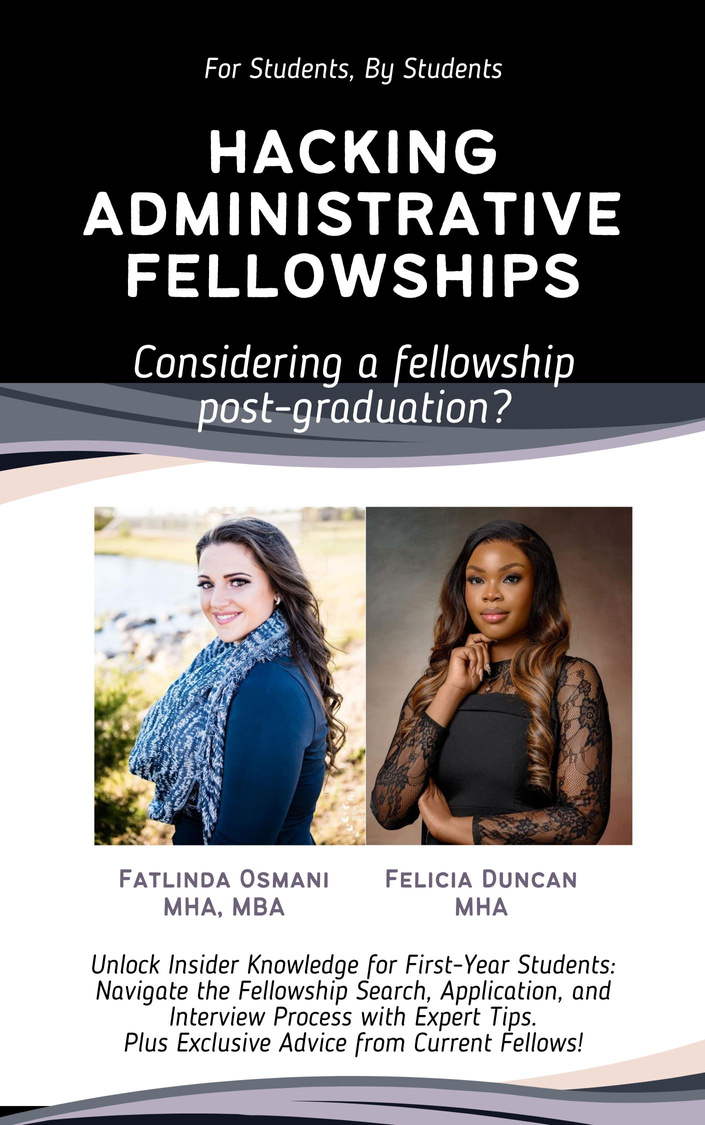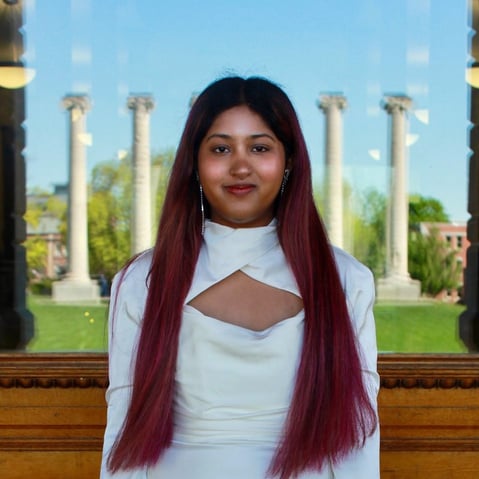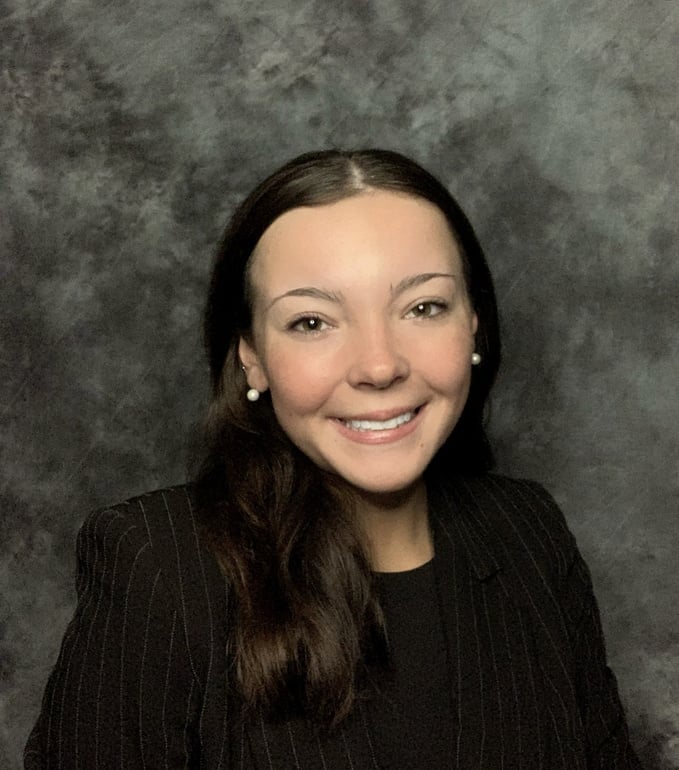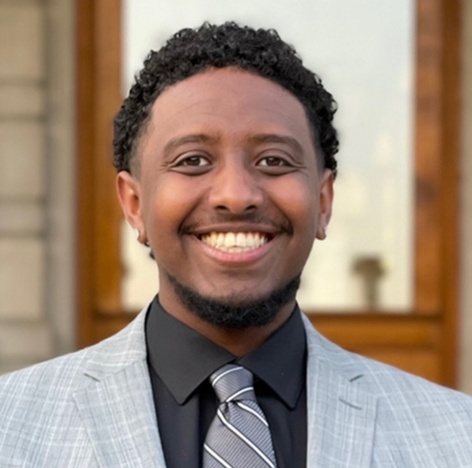
Hacking Administrative Fellowships
Welcome to a guide for students considering an administrative fellowship! This book is packed with valuable insights and advice that the authors wish they had known during their fellowship journeys. The goal is to share these experiences to help future applicants navigate the process with confidence and success.
Testimonials

Nazeema Khan, MHA, MBA
- Would you recommend a fellowship?
- I would personally recommend a fellowship because of the number of opportunities it gives an early careerist. I'll give you reasons that I initially chose to pursue one and why I'm looking forward to mine- I'm sure I'll have more once I complete my 2 years! A big reason I pursued a fellowship is it gives you a quick way to climb the leadership ladder. For me, there's a lot of uncertainty in starting an entry-level position because you don't know when you'll have opportunities for promotions and how long that would take. A fellowship trains you to where you're qualified to apply to the Director level positions after just a year or two. A few other reasons why I would recommend a fellowship are the exposure to different departments, working on multiple projects, and networking. For me, I'm in a spot where after two years of being in our program I'm still not entirely sure what it is I want to do full term. I get more into detail about this for the question 'How would this prepare you for a professional role?'
- What skills did you learn during your process?
- Interview skills are the most important!! I cannot emphasize how much I had to work on this part to get a yes! First, It's important to have writing skills. Your resume should be pristine along with your cover letter, personal statements, and any additional essays. Make sure your experience, skills, and values are relayed to fit those of the organization. No typos, or grammar issues, and double-check that you didn't mention another organization if you're using the same template. This is important to get yourself any first-round interview. The interviews were the hardest because you have to be able to talk about yourself in a confident and concise manner. I think I would have gotten one in a preferred organization if I had dedicated more time to this. Go through commonly asked behavioral and situational questions over and over I started a doc with these questions and a rough idea of the main points I would touch on. You cannot be overprepared for interviews in my opinion. I wish I had spent more time over the summer doing this.
- How would this prepare you for a professional role?
- Going back to question 1, I think rotating through various departments, working on diverse projects, and networking would prepare you for roles after a fellowship. I liked the appeal of rotating through departments and working on projects, so I got a better idea of what that work looks like. Obviously, we do a little bit of this in our internship but there's a huge difference in a one-week/month rotation and a three-month plus rotation. At the end of my two years, I'll know what positions to seek out with confidence instead of second-guessing and going into something I'm not happy with. Networking is huge because you have access to higher-level leadership you wouldn't have in an entry-level position. If you're in a fellowship in an org where you plan on staying long term networking with this group is really important. If you're not staying long-term, there's still so much to learn from people in positions you want to be in one day!
- What projects are you going to be able to contribute to?
- The fellowship includes rotations and projects through departments including operations, finance, quality, and strategy. These were just the few listed, however, there are more elective departments that I will rotate through once I start. Depending on the organization you go to, you'll have more unique opportunities. With Saint Francis, I can choose to do rotations through research, innovation, and general counsel.
- What made you pick your organization?
- The size. I've always been attracted to bigger health systems primarily because there's more to be exposed to. Of course, as you're applying, pay attention to the culture, values, and mission. Once those were a good fit for me, I researched the departments they had and asked myself if I could picture getting everything I wanted to go out of the fellowship here. In Saint Francis, I get to rotate through core departments like finance and operations, but it was important for me to also explore personal electives such as innovation and general counsel. Alo of other health systems don't have departments dedicated to either, but Saint Francis does!
- What tips do you have for students applying to fellowships?
- Always double-check your application materials for typos and grammar issues. Make sure your turning in a personal statement for a specific organization in the right place. There's nothing worse than attaching a letter mentioning one organization to another. Take your time and work ahead, I did not and I could have saved myself a lot of stress. The sooner you're able to turn in the applications the more time you have for interview prep. I mentioned that interview skills are really important because if your application is good enough to get an interview l, not being able to talk in interviews isn't going to get you where you want to go.
- How do you handle relocation?
- Relocation can be stressful, I had to go through this for the summer for my internship and now for this fellowship. The first thing I focus on is housing. Getting a lease is the most stressful part for me but once that's done, you can take your time to relocate your things when the time comes. Figuring out the details of relocation is a lot, so start looking at places as soon as you have accepted an offer. With a new place comes new adventures so as intimidating as it seems, it usually turns out just fine.
- What are some questions that they asked you that were unique during the interview process?
- I mostly got your common behavioral and resume questions. Some that I had to pause and think about are what ingredients would make the perfect recipe for a leader, what you want us to remember about you if we asked your internship preceptor to describe you in a few words what would they be, and of course case study questions that throw most people off. In these cases, they're looking to see your critical thinking and decision-making process rather than one right answer.
- How did you take rejections?
- Rejections are hard- especially if it's from a dream organization. However, you can't give up. After every interview, I wrote down the questions I was asked so I can prepare if I was asked that again. If I felt I didn't talk about something that I should have I note that down for that question. Every interview is a learning opportunity. I nailed my Saint Francis interview because I knew what to expect having been through multiple interviews prior.
- How was your process with your organization?
- My organization did not ask case study questions. The first round was your basic behavioral questions like why our organization, why this location, tell us about this project, etc. My second-round interview was with four panels and they were similar to the first round in that I got those same questions again. On top of that, other questions were heavily focused on the five projects I did during my internship and my Lean Six Sigma certificate. They wanted to talk about my experience in detail but wanted to see my work style including how I managed time, projects, etc.
- Anything else you would like to add about your experience that could help future students?
- Apply to as many as you can and don't count out the small guys. By this I mean if a hospital is smaller than you want, in a location you don't want to go to or isn't a big name, apply to them anyway. People told me to be picky because these things matter, and they do. However, if a fellowship is your end-all-be-all be all goal, do not limit yourself. I did that during the first round of NAFCAS applications and I wondered if I would have had a different outcome sooner. In saying this, don't compromise on big things like organizational culture, values, and mission. Compromise where you can because at the end of the day, a fellowship is a fellowship where you get to experience diverse project work in a new health system. This experience will never go to waste.
Testimonials

Madison Fox, MHA
- Would you recommend a fellowship?
- As of right now, I would recommend a fellowship. My reasoning is the job security I have felt since early in my second year of graduate school. I was able to focus on school work and not navigate the job market. I look forward to the learning opportunities within my fellowship and more time to grow. Since I have not yet started, I would love to follow up with you in the future.
- What skills did you learn during your process?
- During my interview process, I learned how to navigate my nerves a lot better. The interview process was nerve-wracking, but I had to overcome these feelings. I also learned a lot about great organizations. It was awesome being able to tour, listen to speakers, and much more!
- How would this prepare you for a professional role?
- I think the fellowship will provide me with a vast number of experiences in multiple different realms of health care. I think by rotating through different departments I will get a better idea of where I might fit into an organization after.
- What projects are you going to be able to contribute to? (if you know)
- I am not sure on specific projects but I will share a link about our fellowship program.
- What made you pick your organization?
- I was lucky enough to be selected by Johns Hopkins Medicine, as they were my dream organization. I think what really stuck out to me was during the application process, they asked for an extra letter of recommendation from a friend or someone who could speak to our character. This spoke volumes to me and made me feel like they wanted to get to know me on a personal level not just based upon my skill set.
- What tips do you have for students applying to fellowships?
- I would say to find a way to stick out and be memorable. Everyone I met during the process who was interviewing for the same roles as me was so kind, intelligent, and deserving. There is no doubt that everyone at the onsite interviews had valuable knowledge, skills, and passions that could benefit any organization. However, I think by showing them your personality and truly embodying your "why healthcare" can make you stand out.
- How do you handle relocation?
- As I write this, I am relocating a month from today. I am excited but also a bit anxious as I will be relocating across the country. Luckily, my mother has been a great help and I was able to find a moving company that fits my needs.
- What are some questions that they asked you that were unique during the interview process?
- In various interviews:
- Two organizations asked case questions in a first-round interview
- Another org asked me about a time in which I used a strategy to produce an operational change
- I did not have an answer to this, so I decided to explain a time that I observed my preceptor doing so
- Multiple organizations asked for a talent not listed on my resume
- Another org asked me to describe a time in which I put the emotional needs of others before my own and how that negatively impacted me
- How did you take rejections?
- There were many, many rejections. The first couple were disheartening and obviously, no rejection made me happy. But I tried to look at it as if I was one step closer to finding my fellowship location.
- How was your process with your organization? (case study?)
- At Johns Hopkins Medicine, I was selected for a first-round interview based upon my NAFCAS application. This was held on Zoom with leadership and two current fellows. I was then moved on to the final round of interviews, which was on-site. This interview started with a dinner the night before the big interview with current fellows, followed by a full day of speakers- leaders throughout the organization, and an interview with various leaders throughout JHM.
- Anything else you would like to add about your experience that could help future students?
- Make sure to find an organization that aligns with your values/desires/hopes/dreams. I felt at home during my interview. While it is natural to have nerves, you should also feel excited to learn from them and hopefully stay at that organization long term.
Testimonials

Eyob Teklesenbet, mha
- Would you recommend a fellowship?
- I would recommend a fellowship due to its versatile learning, networking, and growth opportunities.
- What skills did you learn during your process?
- I learned the skill of selling yourself in a professional manner, and analyzing whether an organization is a good fit for me or not. The fellowship application process is a stressful one, and it takes great practice to be confident in yourself and your answers so learning to be patient and authentic is crucial.
- How would this prepare you for a professional role?
- I think a fellowship prepares you for a professional role by equipping you with the skills necessary to execute a managerial role in a hospital setting. Getting a degree can only do so much, furthermore, a fellowship gives you the opportunity to get hands-on learning to excel in the workforce.
- What projects are you going to be able to contribute to? (if you know)
- I don’t know yet but excited to get started!
- What made you pick your organization?
- After doing some research on several organizations, NYU Langone’s culture and mission really caught my eye. NYU Langone has gone through a substantial amount of growth in the past decade and has made national headlines, growing to be one of the best healthcare systems in the country. That growth is what excited me most because there’s a culture of continuous improvement to provide excellent patient-centered care and exceeding the ceiling on how great the organization can be. On another note, what also sold me was the immediate connection I felt when speaking with the interviewers, who were very welcoming and personable.
- What tips do you have for students applying to fellowships?
- I think being yourself is the first tip I would tell anyone. Many applicants are the same on paper: master’s program, internship, good grades, etc., however, unless you have years of work experience already, being your authentic self is what really sets you apart from others in my opinion. Search for organizations that excite you and think you’d be a good fit at. Lastly, network with current fellows to see how their fellowship is going and what projects they are working on. This will give you a little idea of how being there would be, plus current fellows give helpful tips since they just went through the process.
- How do you handle relocation?
- I’m from Missouri and anytime I tell anyone I’m moving to New York, I get called crazy. However, I’m very excited about this move and was open to relocating anywhere for my fellowship. If you are thinking of doing a fellowship, I highly recommend you’re happy and okay with relocating as it is almost inevitable.
- What are some questions that they asked you that were unique during the interview process?
- I once was asked, “if it were your last day on Earth, what would your last meal be”? I laughed, however, these types of questions help applicants keep their nerves grounded. Another unique question I got was when an interviewer provided me with different aspects of healthcare (ex: Finance, quality people) and had to rank them in importance. Other than that most questions came from my experience.
- How was your process with your organization? (case study?)
- There were two rounds. The first was 1 session with current fellows and a fellowship preceptor. The second round was multiple interview sessions with many different leaders throughout the organization.
- Anything else you would like to add about your experience that could help future students?
- It’s stressful but worth it in the end. Everyone will have different advice and perspectives about fellowships and their process, but it’s important to do what’s best for you and your personal situation.